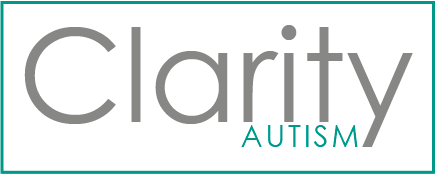A guide to your child’s autism assessment
Developmental History
The developmental history focuses on your child’s development to date and across lots of different areas (e.g., pregnancy, medical history, motor milestones, language etc.), and then on your child’s skills and abilities in the following areas.
Use of non-verbal communication (e.g., eye contact, facial expressions, and gesture).
Play interactions with others, and the friendships they may have formed and maintained over time.
General day-to-day behaviour, and their adherence to ‘social rules’, and how they communicate their wants and needs.
Spontaneously sharing information about their likes, enjoyments and successes.
Current language abilities.
Conversational skills, including starting a social interaction with others, but also maintaining this (e.g., asking questions, allowing others to contribute to this conversation etc.).
What your child’s speech sounds like (e.g., volume, intonation, rate and rhythm, any repetitive features to it etc.).
Imaginative play, and engagement with aspects of this, including role play.
Hobbies, passions and interests.
Adherence to any specific routines, order, or rituals, including response to any interruption to plans.
Any movement of hands and/or body when particularly excited and/or distressed.
Any sensory sensitivities (e.g., to clothing, food, noise, light etc.).
Due to the amount of information required for this appointment, we send out the pre-assessment form for you to take your time and consider some information and ask you for more detail on this when we speak.
As there is a lot of note-keeping involved, we typically complete this by telephone so that we can type our notes in detail as we speak to you.
We will also speak to a teacher about your child’s skills and abilities in the above domains as well.
Speech and Language assessment
The aim of this assessment is to understand your child’s speech, language and communication skills.
Such skills are integral to forming and maintaining social relationships, communicating wants and need, understanding messages from others, and expressing emotions.
Whilst some abilities simply relate to understanding basic instruction, others are more complex (and more subtle) and include understanding inferred meaning from others (which can be areas of need for some).
In this assessment, Lynsey Dennis will focus on your child’s speech and language abilities, which includes focus on their basic naming skills, but also their abilities with inferencing, understanding idiom, and other forms of abstract language which apply to wider to social-communication skills
The session will take approximately one hour and is typically completed in school so that your child does not miss too much of the school day!
ADOS-2
Quite simply, the ADOS-2 is an informal chat with one clinician, whilst another clinician observes and takes some notes.
This conversation will focus on things such as school, friendships, emotions, hobbies, interests etc., and with some short tasks to complete as part of this (e.g., a basic puzzle).
As the session is about you, there are absolutely no right or wrong answers! This session lasts approximately one hour.
Cognitive Assessment
Finally, the cognitive assessment involves a series of games and puzzles to help understand your child’s strengths, and any areas of need.
This helps us to understand a) what else may potentially contribute to your child’s presentation, and b) how we can support their education and learning going forward (be it in school, college, university, and eventually in employment).
The tasks focus on skills and abilities in the following areas.
Use and understanding of language (Verbal Comprehension)
Skills with reasoning and logical problem solving (Fluid Reasoning)
Ability to solve problems by moving things around in your mind (Visual Spatial abilities)
Tasks of verbal and visual memory (Working Memory)
Ability to complete tasks with speed and accuracy (Processing Speed)
This is completed in multiple ways, including giving an answer on the iPad, moving some small blocks around, and completing a quick paper and pencil task, and it takes just over an hour to complete.
Most importantly, there is no pass or fail to this assessment, but as this is something we complete with 6-year-olds (and all the way up to 17-year-olds), then it will probably be pretty easy at the start, but it is supposed to become a bit trickier as it goes on – but this helps us to understand those strengths and areas of need in more detail.
In relation to all the assessments described above, a key mantra at Clarity Autism applies - To be appropriately supported, you have to be appropriately understood - and all of the above contribute to ensuring that your child’s strengths and areas of needs are acknowledged and subsequently supported in whatever they choose to do in life.
